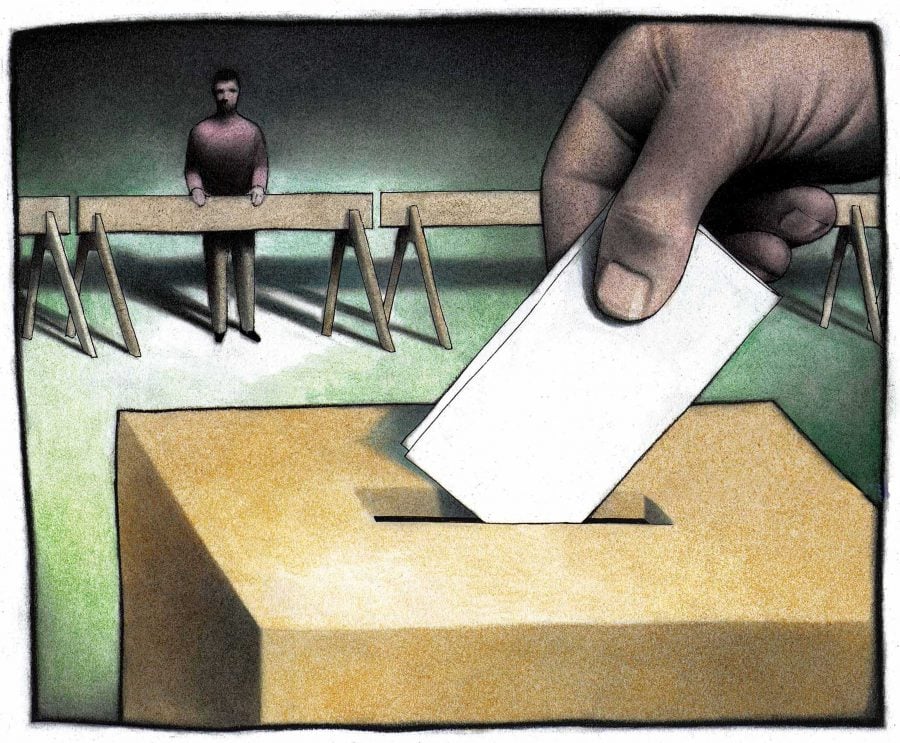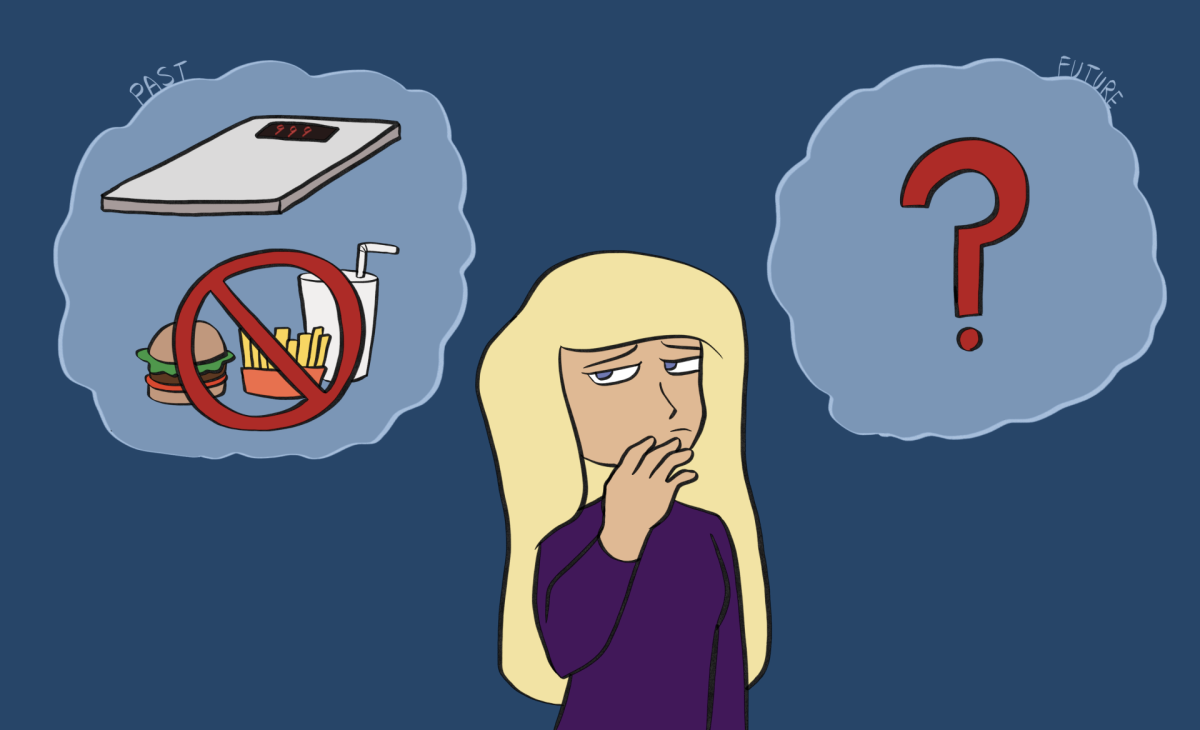The completion of the 2016 presidential election saw, according to CNN, 55 percent of the eligible voter population arrive at the polls to cast their votes and voice their opinions on the future of their country.
While many voters needed no extra encouragement to show up to the polls, many required a bit of an extra push. Because of voter apprehension present in the U.S., the candidates on the ballot, as well as outside political organizations, utilized commercials, concerts, Snapchat filters and last minute rallies to capture the attention of potential voters. While picking the right candidate may be the hardest decision during election season for most voting citizens, others do not even have the ability to vote because their constitutional rights have been stripped from them by a felony disenfranchisement.
Felony disenfranchisement is the exclusion of voting rights from otherwise eligible voters due to a felony conviction. In all but two states — Maine and Vermont — citizens convicted of a felony are unable to vote. While 14 other states only restrict voting rights while an individual is incarcerated in a correctional facility, the remaining 34 states restrict voting rights either completely, or restore them once the completion of extensive incarceration, parole, and probation terms are met.
The terms of an offender’s parole or probation may include finding a job, passing drug tests, attending therapeutic counseling sessions, and not committing any further crimes — essentially, the duties of the standard citizen. It is understandable that an incarcerated person cannot vote while they are serving their sentence in a correctional facility as they are unable to have a complete understanding of the present state of their country. However, restricting the rights of a convicted felon once they are integrated back into society is unreasonable and is a punishment without sufficient justification.
According to the United States Department of Justice, the mission of the Federal Bureau of Prisons is to “provide work and self-improvement opportunities to assist offenders in becoming law-abiding citizens,” and to “facilitate the successful regeneration of inmates into society, consistent with community expectations and standards.”
If past offenders are required to abide by the standards of the average law-abiding citizen, then they should be given the same rights as one. The mission of the Federal Bureau of Prisons is impossible when the restriction of their rights conveys that society does not view them as equals, but as second-class citizens.
Amali Dabarera, a peace, justice and conflict studies professor at DePaul, came to the United States from Sri Lanka 10 years ago to pursue higher education. As a permanent resident in the U.S., she enjoys the same freedoms as American citizens with one major exception: the right to vote. Having lived in America for 10 years, yet not being a legal citizen, Dabarera has the special ability to analyze felony disenfranchisement from both an insider and outsider perspective.
“Having the right to vote defines citizenship. I believe that a person’s citizenship status should not be taken away due to a crime,” Dabarera said. “I feel like this is a birthright of a person. Strict punishments such as felony disenfranchisement give the message to these felons that they are no longer true citizens and are not welcome in their own country. We need a restorative justice system where we heal our felons and the victims. We should strive for a system that makes them part of our society again and not a system that would entrap these felons in a vicious cycle.”
The Brennan Center for Justice estimates that “America now houses roughly the same number of people with criminal records as it does four-year college graduates.” Although not everyone with a criminal record is a felon or even saw time behind bars due to their conviction, it does demonstrate how frequently individuals have run ins with the law. If one simple mistake carries ability to restrict a basic civil right, then it is important to consider how many Americans are not career criminals, yet lack the right to vote due to a felony conviction.
In 2014, 5.76 percent of the African-American population was incarcerated, while 2.46 percent of the Caucasian population was incarcerated, as reported by a U.S census report. In addition to the fact that African-Americans are already outnumbered by Caucasians in the U.S., a higher rate of incarceration among African-Americans means that more of their voices are silenced by felony disenfranchisement.
Not only is felony disenfranchisement an unjust punishment, but it can be manipulated to oppress the rights of specific groups of people by arresting and convicting individuals who belong to a certain racial or religious group. Additionally, the voices of the incarcerated are valuable and can offer a unique viewpoint on the inner workings of the U.S. justice system; without them, crucial changes to the Department of Corrections on both a state and federal level may be overlooked or only considered from an outsider’s perspective. If the voices of minority groups cannot be properly heard, then the U.S. cannot be considered a fair democracy.
“Having such high rates of incarceration and denying such a large portion of the population of the opportunity to express their political views does not make me believe that we are practicing a true democracy here in the U.S. (…) It was estimated that there were about 5.8 million felons who could not vote in 2016,” Dabarera said. “Taking away their right to vote means that these populations who are discriminated against have a lower chance of equal representation in government. This indeed negatively affects the democratic process where anyone should have their fair share of decision making power to build our political system.”
Considering the close outcome of the 2016 presidential election, had even a fraction of an additional 5.8 million eligible voters made it to the polls, the results could have been drastically different. When the majority demographic of voters controls the popular vote, it is no surprise the needs of minorities and the incarcerated are often overlooked in major elections. Returning the unfairly restricted voices of convicted felons could not only be beneficial to America, it is absolutely crucial if we wish to begin to function as a true democracy.








